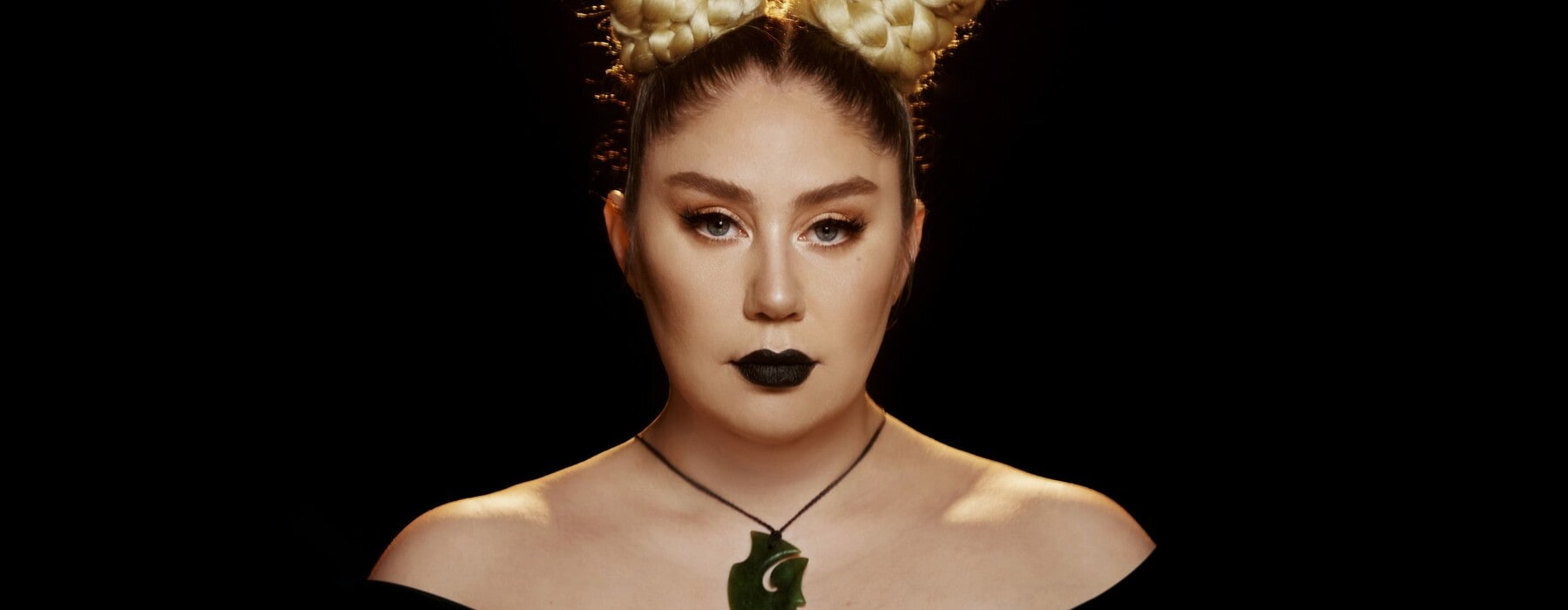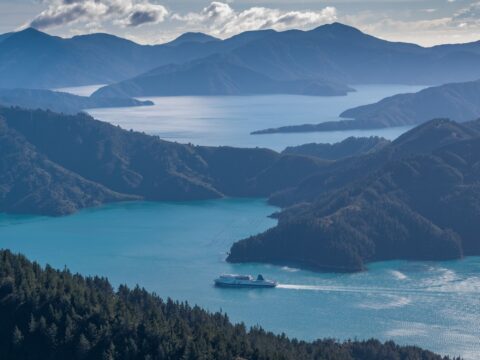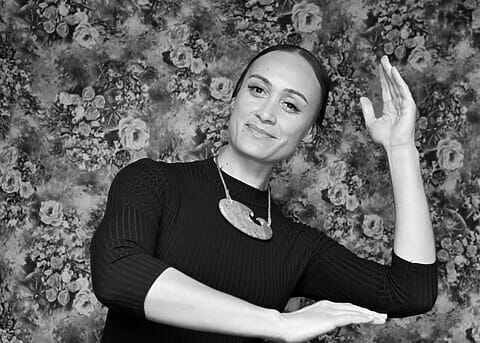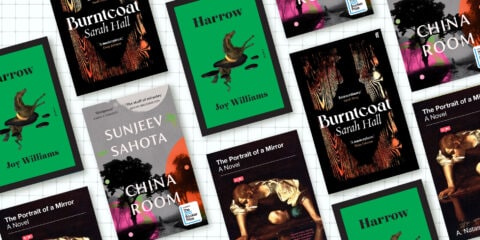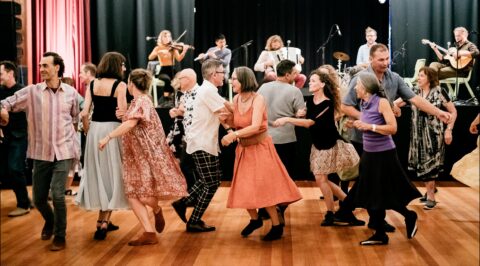An anti-war waiata from the 1940s has been given new life by a singer who is honouring a long musical tradition started by her great-grandmother.
Theia, our newest pop princess, likes to push boundaries and challenge social injustices through her songs. But of all her vast repertoire, there’s one many Māori will already know, having grown up singing it either on the marae or at parties. It’s the classic Kiwi Weka, written and composed by Theia’s great-grandmother, Mite Te Aho Karaka Kukutai.
“It’s been a blessing growing up with the knowledge that my kuia had written this beautiful waiata that is loved and cherished all across Aotearoa. Nanny Mite passed away before I was born. I never met her, but I’ve always felt her influence.”
Theia comes from a long line of strong wāhine Māori who loved music. Her iwi are Waikato-Tainui, Ngāti Tiipaa, and Ngāti Amaru. Her Nanny Mite, a lady-in-waiting for the Māori queen, Dame Te Atairangikaahu, travelled around the Pacific and would be called upon to perform Kiwi Weka on special occasions and to teach waiata and haka. The song, written in te reo Māori in the 1940s, is about the 45,000 US troops that came here before they left to fight through the Pacific to Japan during World War II, and who had brief relationships with Māori women.
She says women from Tainui-Waikato got pregnant with these visiting soldiers, and her Nanny Mite wanted to tell their stories through her waiata. She also used the song to express her stance against warfare.
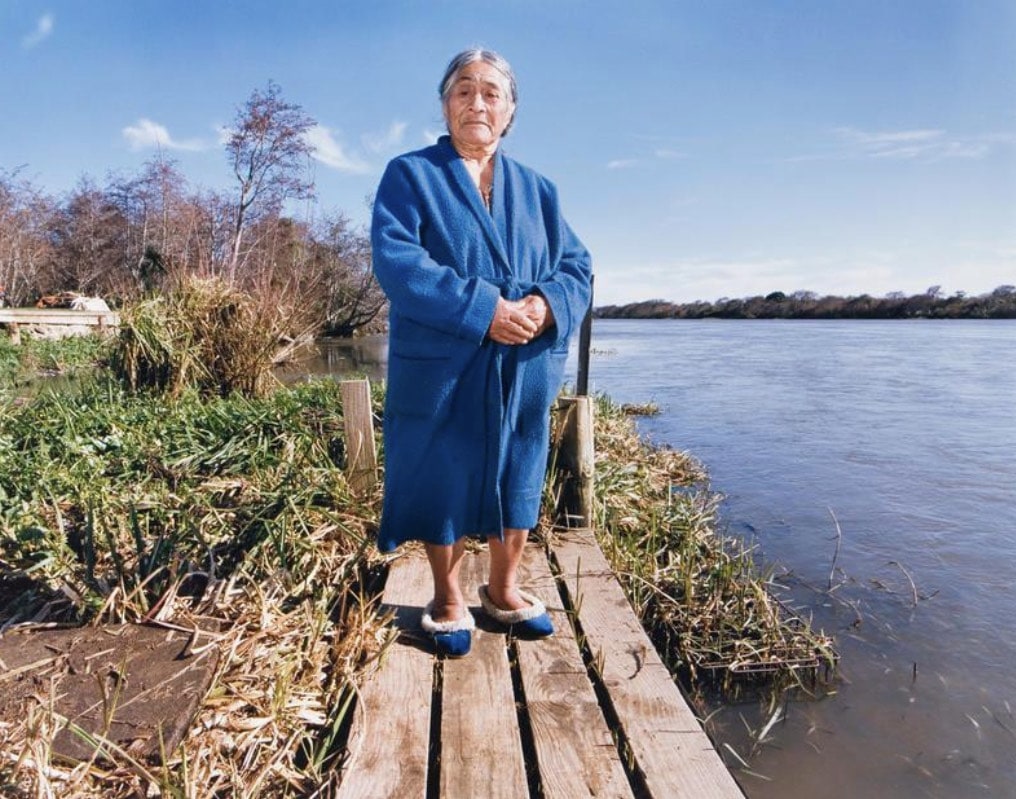
“The wāhine were charged with raising the tamariki after the soldiers never returned. It’s a metaphor that compares wāhine Māori with kiwi weka, which are flightless native birds, and American soldiers, who were stationed around Port Waikato during the war, with seabirds. They would land for a moment, have relationships with wāhine Māori, then leave.
“Being from the Waikato, we live under the Kīngitanga [Māori King movement] and tino rangatiratanga or self-determination beliefs. We believe the Pākehā wars were not our wars to fight, so we stood firmly against our people going to war,” Theia says.
“At the same time, there’s this great sadness in Kiwi Weka, that despite our people not signing up to fight, the war came to us in this way and we came face to face with the war. The implications of that are what’s in Kiwi Weka. It’s a beautiful piece of songwriting. It’s a taonga.”
Theia, whose work has been recognised by Rolling Stone and Billboard magazines and who has had multiple nominations for Aotearoa Music Awards, gave a special performance of Kiwi Weka at an event organised by the US Embassy at the Auckland War Memorial Museum in May to commemorate the 80th anniversary of the US soldiers coming here.
Born Em-Haley Walker, Theia was raised in Christchurch, but moved to Auckland in 2016 to pursue a career in music. She has inherited her Nanny Mite’s talent for songwriting and uses her music to highlight important issues. When she was 18, she wrote her first professional song in reo Māori. Called Angel Eyes, it dealt with the grief of losing her best friend to suicide.
“We were best friends. We both had big goals and dreams. It was heartbreaking. I was so young and I found it hard. I couldn’t process all of the feelings of guilt, grief, and anger. I didn’t fully understand the reason and the implications.”
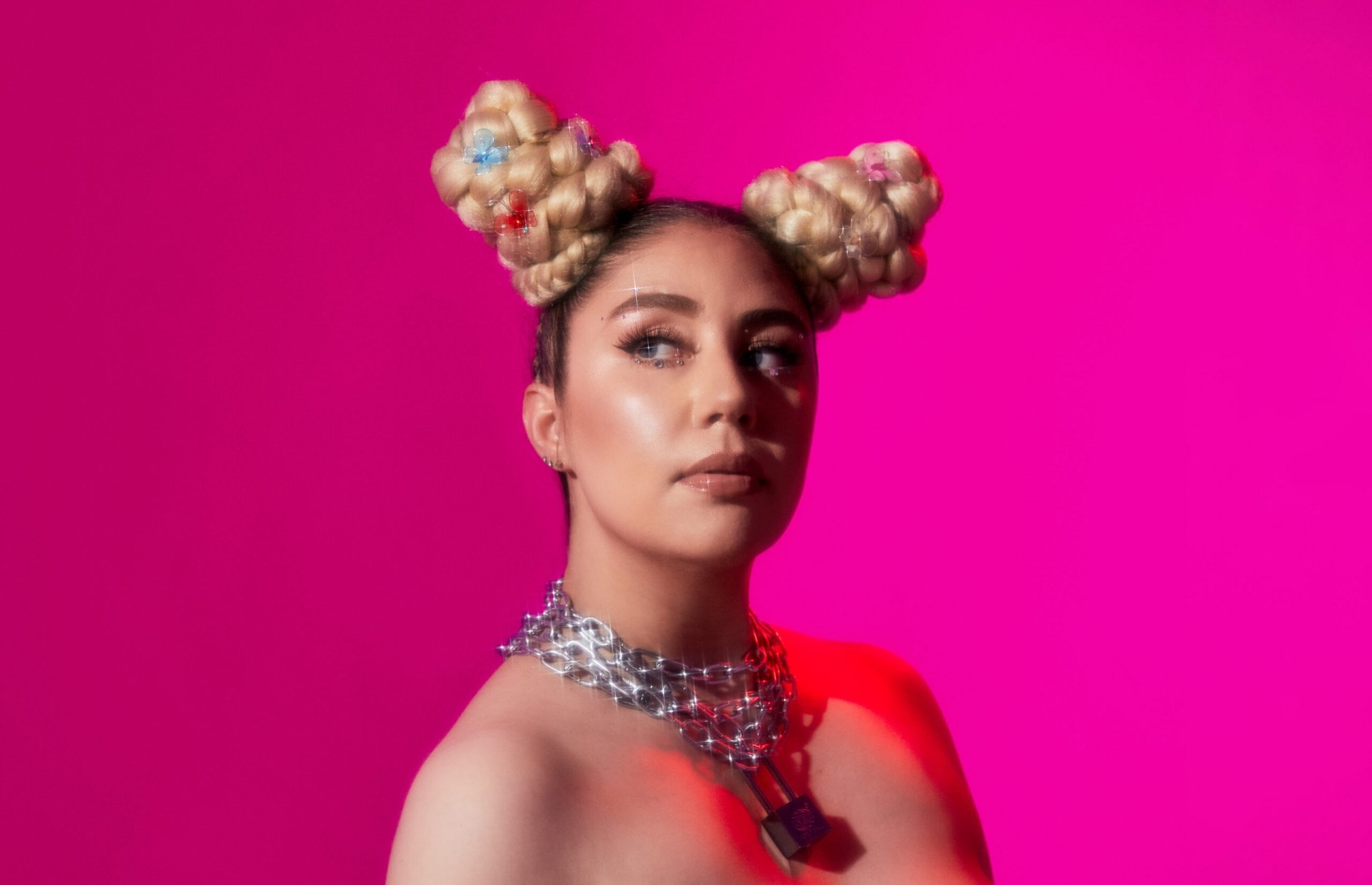
Theia performed the song for the first time at her friend’s tangi.
“I was in the wharenui beside her and sang it to her. I was in a dream-like state. Writing this song and performing it for her was the only gift I could leave with her. It was the perfect way to be able to farewell her and pay tribute to her. It was painful, but it helped me understand that music is a vehicle for me to process my emotions.”
She discovered she could infuse important messages into her songs to help change lives.
“Songwriting was a way to get in touch with that hurt that you bury and push down because it is too hard to talk about. There are many factors that make us vulnerable to suicide. I’ve also had times when I struggle with my mental health. But it’s important not to stay silent or feel as if you’re not able to seek help. Talk to someone you trust and allow people to walk with you and help you.”
Another important aspect of Theia’s music is tikanga and te reo Māori. Before embarking on her musical career, she completed a double degree, majoring in te reo Māori and indigenous studies, and worked as a Māori language tutor at a primary school. She fell in love with all things Māori growing up with her Nanny Rangirara Robinson née Kukutai, who spoke in her traditional tribal Waikato dialect or “mita”.
“I was privileged to sit with my kuia a lot. Her whare was on the banks of our awa and our marae. She always spoke reo Māori around me and taught me the old ways of speaking,” says Theia.
“With the revitalisation of our reo, there is a very generalised reo that’s known by people who are reconnecting, and it’s taught at Whare Wānanga and universities. That’s amazing, and it’s great to get a good base. But the most important thing is to ensure our tribal dialects are not lost. That’s one thing I gained from my nanny and really treasure; to be able to learn the specific Waikato dialect, with its beautiful words. That’s what I use in my songwriting. It’s a gift I can give, to write and perform songs that are written in our unique dialect.”
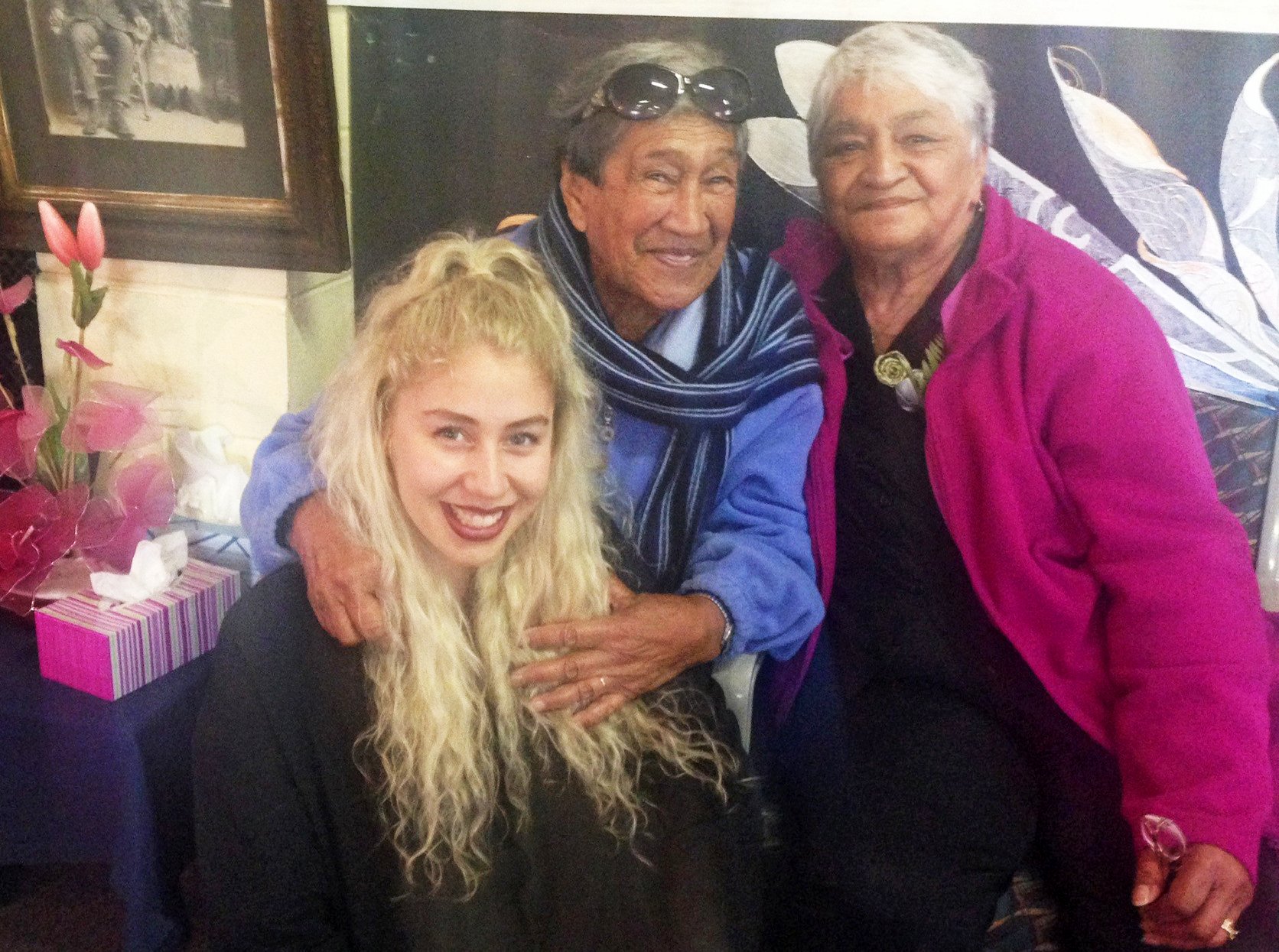
This year, Theia paid tribute to her nannies by releasing the album Te Kaahu O Rangi, with all the songs in te reo Māori.
“Te Kaahu O Rangi is the combination of the mātauranga (knowledge) that I have been blessed with from my ancestors and kuia. What I wanted to show with Te Kaahu O Rangi is to counter many of the tropes that we get by simply being Māori and instead show the intelligence, vulnerability and passion of our people,” she says.
“I am so grateful I can now present this album as a taonga tuku iho – a treasure to be cherished and played for years to come.”
Surprisingly, Theia grew up shy and had a fear of performing. But the encouragement from her kuia to perform in kapa haka helped her come out of her shell.
“I’d always be egged on to give the waiata tautoko or perform in kapa haka, which gave me confidence. I’ve always written poems and I’ve always had a love of words, so it was only natural I would end up putting lyrics to music and becoming a composer and musician.”
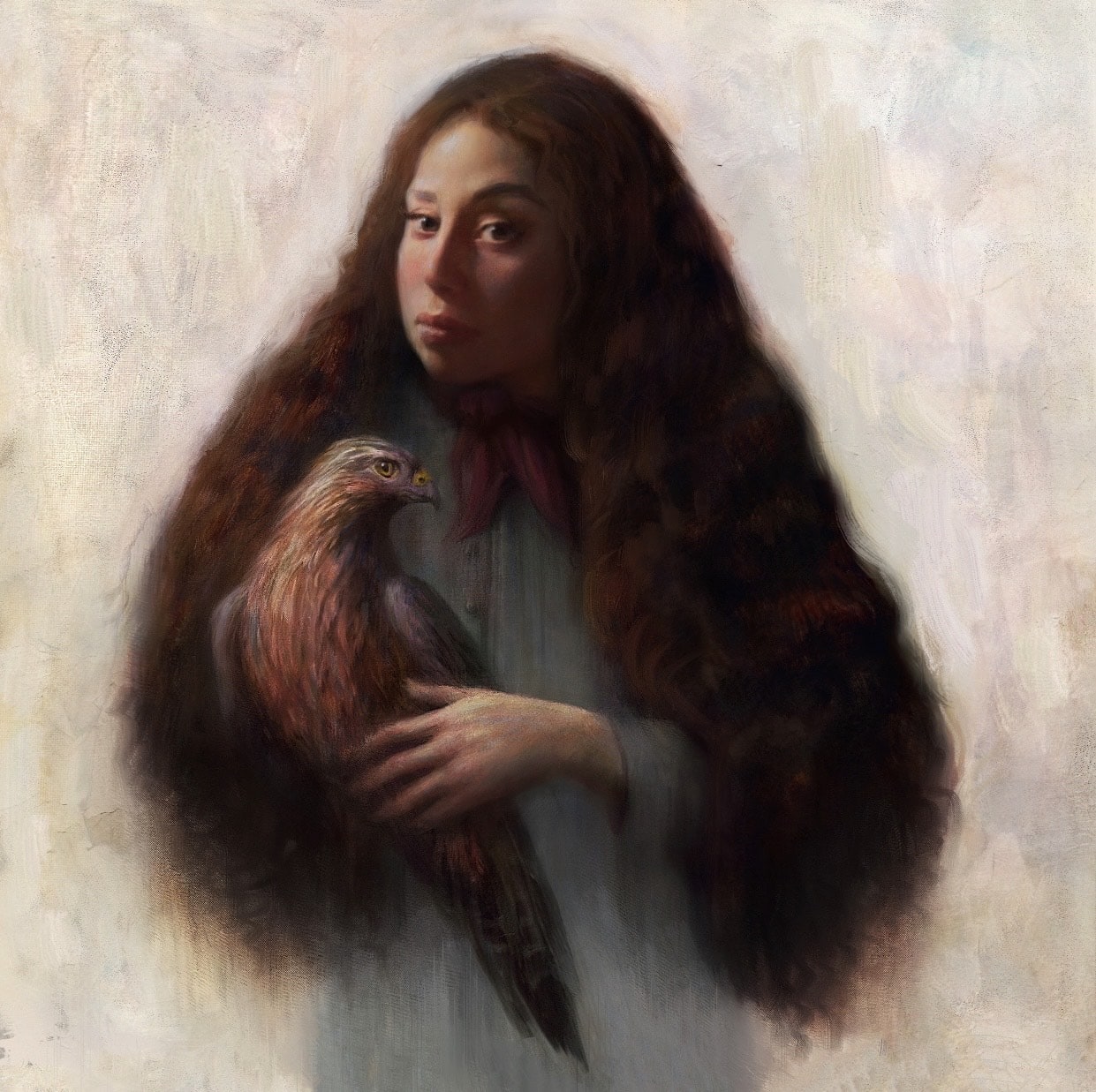
Now that she is making a name for herself in the music industry, she took on the stage name of Theia, the Greek goddess of light, the sun, and the moon.
“It summed up my vibes at the time. It’s a perfect way to describe the mahi that I do and how I like to play with dark and light. It also ties in with te ao Māori and perfectly encapsulates my music.”
If you are experiencing a hard time and need someone to talk to, call 0508 TAUTOKO, a free 24-hour counselling service.
This is public interest journalism sponsored by New Zealand on Air. All images supplied by the artist.

